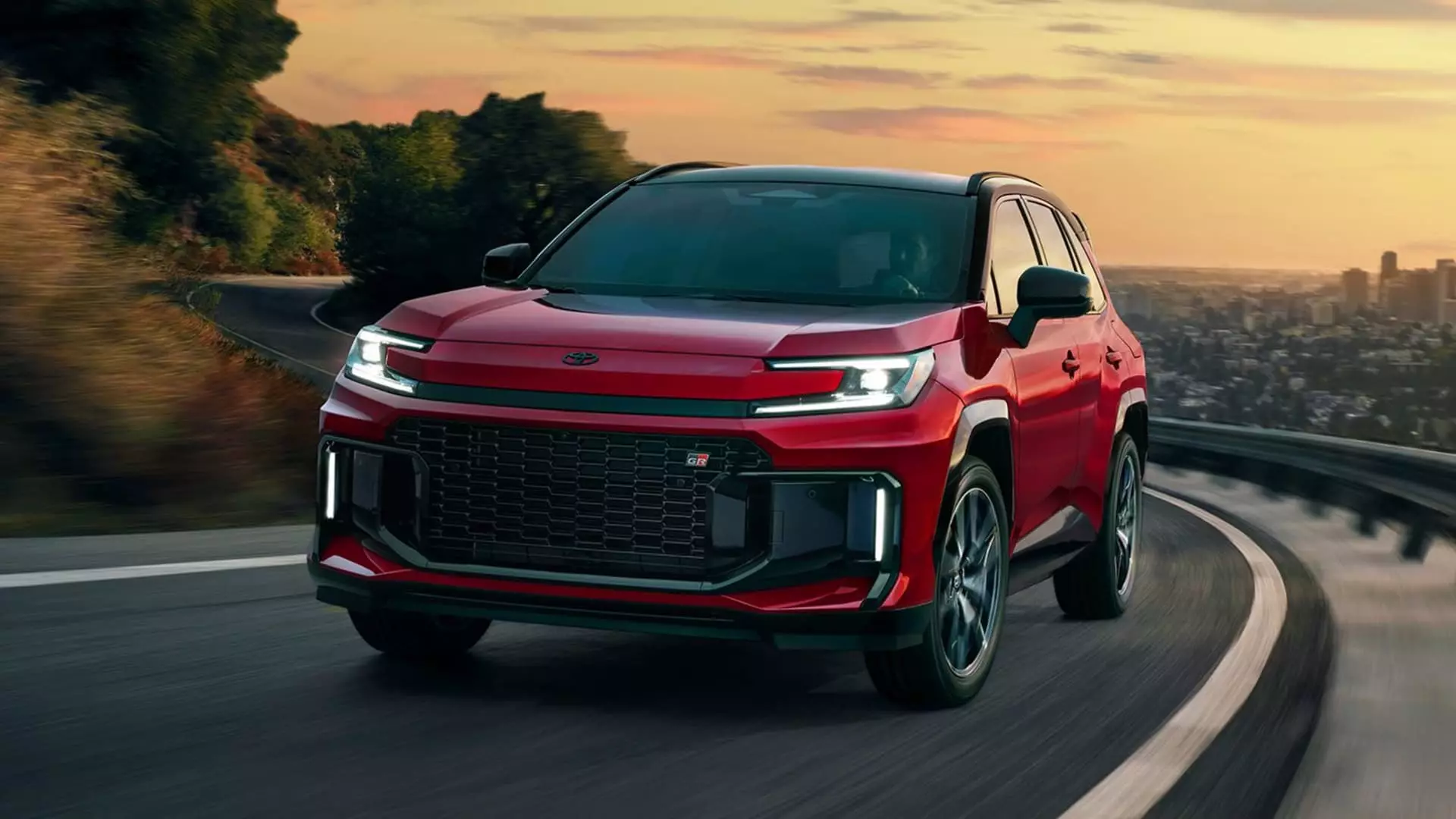In a noteworthy departure from conventional automotive design, Toyota has announced that its top-selling SUV, the RAV4, will transition exclusively to hybrid models, merging electric technology with a traditional internal combustion engine. This move marks a significant milestone in the automotive industry’s slow but steady pivot toward electrification, underscoring the evolving preferences of consumers as they become increasingly eco-conscious. By offering the RAV4 as a hybrid, Toyota is laying down the gauntlet for other manufacturers still clinging to archaic gasoline-powered models. The shift towards hybridization is not merely a trend; it signals a broader change in consumer behavior and demands in the U.S. market.
Bold Decisions Based on Consumer Insights
David Christ, head of the Toyota brand in North America, noted that consumer demand has played a pivotal role in this decision. “The consumer is voting for the hybrid,” he declared, suggesting a profound understanding of market dynamics that transcends mere sales statistics. This strategic pivot reflects an acute awareness of shifting preferences: consumers desire vehicles that not only perform well but also fulfill an increasing moral obligation towards sustainability. With hybrids already accounting for nearly half of RAV4 sales, the choice to eliminate traditional gas engines altogether represents a bold, confident stance that emphasizes aligning business practices with social responsibility.
The Phased-out Engine: A Necessary Sacrifice?
One of the most contentious aspects of this redesign is the outright elimination of the traditional gas engine from the RAV4 lineup. While this may appease environmentalists and tech-savvy consumers, is it realistic? Hybrid technology is undoubtedly beneficial, yet it still compels consumers to grapple with the limitations of battery technology and the availability of charging infrastructure. Will American drivers embrace this compromise, or will they mourn the loss of their beloved gas-powered engines? The reality is that while the hybrid offers benefits like improved fuel efficiency and lower emissions, it also introduces a new set of concerns, particularly surrounding battery life and recycling.
Sales Dynamics in a Complex Landscape
Toyota’s compelling sales narrative—the RAV4 achieved a record number of units sold, despite a backdrop of economic uncertainty—reveals the resilience of consumer trust in hybrid vehicles. Notably, the RAV4 has seen 9.3% sales growth, driven largely by a staggering 29% leap in hybrid sales. Nevertheless, as auto industry data suggests, hybrid vehicles still account for only a fraction of the overall auto market, which remains dominated by gasoline models. With one-fifth of vehicle sales in the U.S. now attributed to electrified options, is this growth sustainable, or merely a passing phase? The data shows a growing appetite for hybrids, but projected trends illustrate a clear need for more robust support structures for electrification.
The Hybrid Advantage
While the RAV4’s transition to an all-hybrid lineup may give competitors sleepless nights, the advantages of hybrid technology cannot be overstated. The acceleration and efficiency of hybrid vehicles outclass those of their gasoline counterparts, providing a unique blend of power and performance that appeals to a diverse clientele. The 2.5-liter four-cylinder engine integrated with hybrid tech not only enhances performance but positions the RAV4 as a versatile option for both urban commutes and weekend getaways. So, while some critics may question Toyota’s all-hybrid approach as a potential gamble, data-driven performance metrics indicate that Toyota is indeed leading the charge in this hybrid renaissance.
Challenges Ahead: Tariffs and Production Constraints
However, this promising hybrid future is fraught with challenges—chief among them being the ongoing trade tariffs impacting vehicle imports. While Toyota produces some RAV4s in Kentucky, the majority come from Canada, making them vulnerable to the economic ramifications of protectionist policies. Mark Templin, chief operating officer of Toyota Motor North America, highlighted the fluid situation regarding tariffs, emphasizing the reality that uncertainty is the nemesis of industry stability. As the company considers increasing domestic production, consumer patience will undoubtedly be tested against a backdrop of fluctuating market conditions.
The Road to Acceptance: Can Toyota Pave the Way?
As Toyota boldly heads into this uncharted hybrid territory, the automotive world will undoubtedly watch closely. The success of the all-hybrid RAV4 will not solely hinge on consumer acceptance; it will require Toyota to collaborate with infrastructure providers to alleviate anxieties surrounding battery technology and charging accessibility. This is a precarious moment in time where traditional automotive values are increasingly at odds with the demands of a modern, environmentally conscious consumer base. Toyota’s innovative spirit may ultimately set a robust precedent for the auto industry—a call to arms for other manufacturers to adapt or risk obsolescence.

